No products
Only 300,00 € left to enjoy free shipping!
Free shipping from 300 €
No products
Only 300,00 € left to enjoy free shipping!
We use cookies to offer you the best experience on our website. You can find out more by clicking on the link below.
More information Personnalisation
At Devoucoux, Made in France is very much part of our concern for maintaining quality.
Since 1985, we have been designing and making saddles in our workshops in the Pays Basque in southwest France, thereby supporting French know-how which is inseparable from our values and a guarantee of quality recognized throughout the world.
Our saddler craftsmen are trained in our workshops and advised by their elders in order to perfectly master the seven main trades of the saddlery profession.
To make a Devoucoux saddle requires 18 hours of work and total mastery of the seven master crafts within the saddlery profession: cutting, preparing, assembling, hand stitching, machine stitching, putting together and oiling.
The know-how is constantly evolving, incorporating new technologies to produce outstanding craftsmanship that knows no equal..
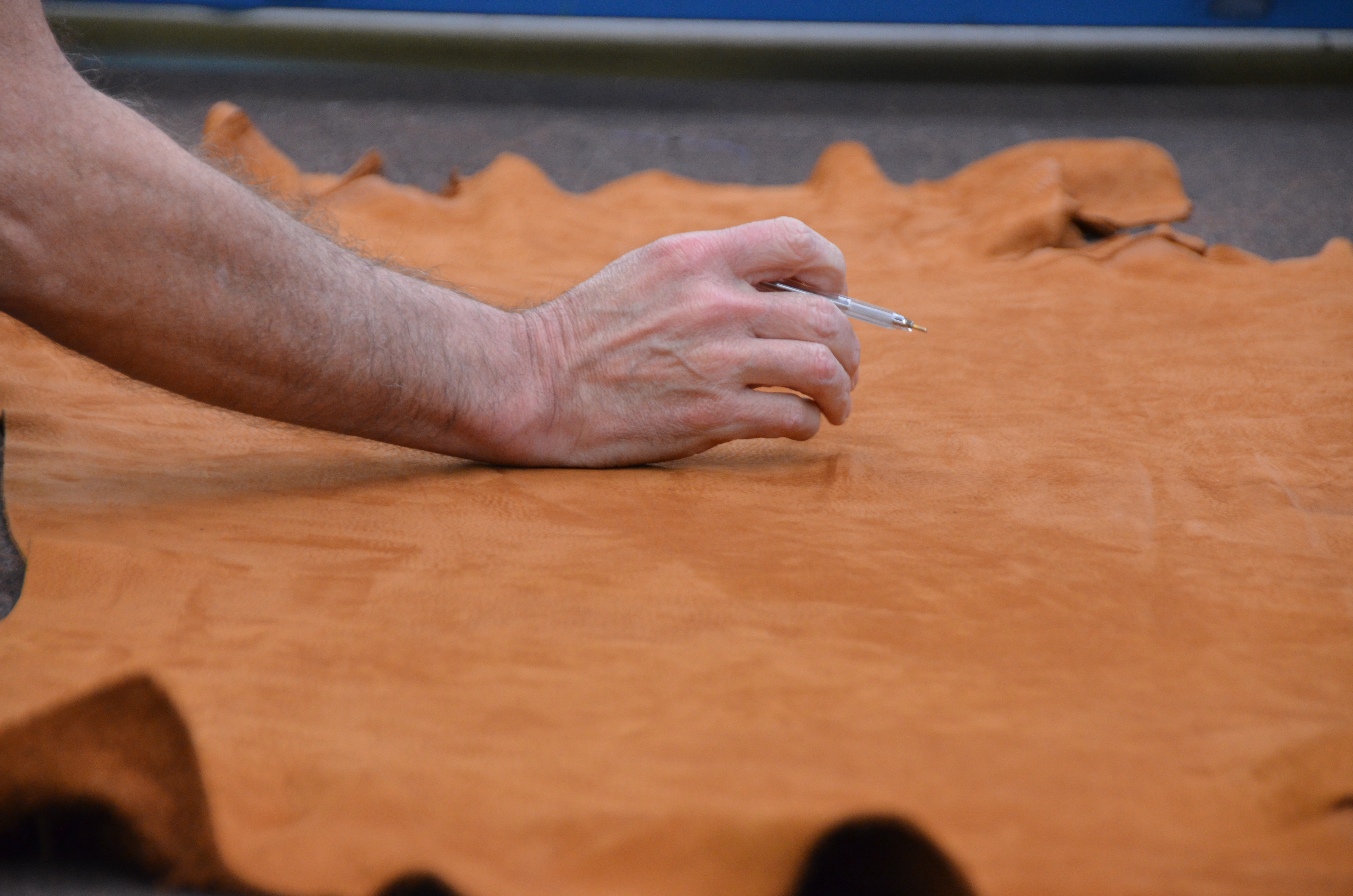
cutting
This is a key stage in saddle making and the first of many involving the saddler craftsman in the lengthy fabrication process. It is also vital in determining the saddle’s quality. The leather is scrutinized for the slightest imperfection – scars, density loss in certain areas, vaccination marks and signs of pests – all of which must be avoided.
The saddler craftsman must be totally familiar with the different degrees of elasticity in any given leather. For certain zones are more elastic than others – a quality that is more or less sought after for each piece making up a saddle. Once this process has been minutely worked out, the craftsman can then place his different pieces for the pattern cutting.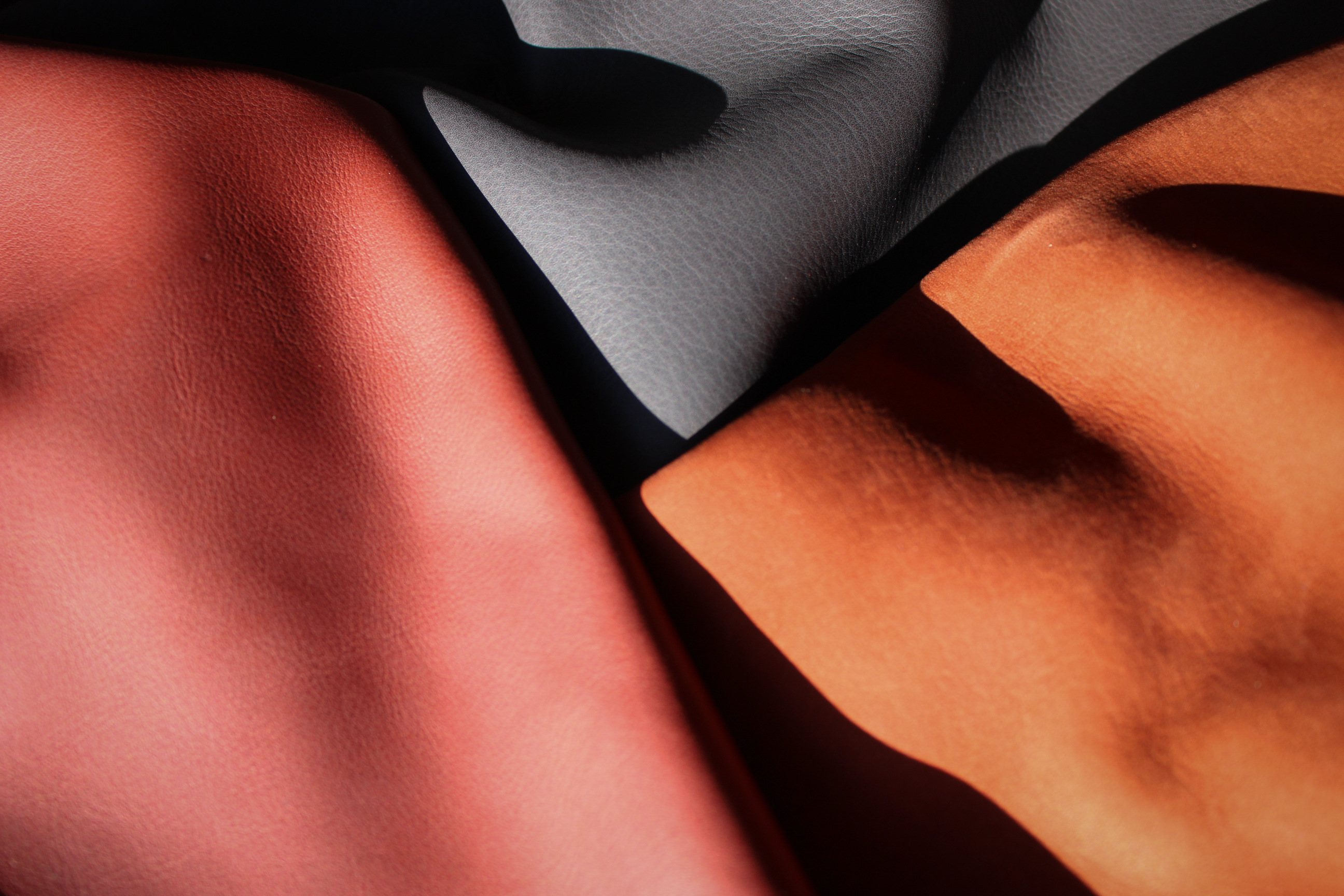
preparing
This stage consists of perfecting the appearance of the previously cut pieces and preparing the various stitching outlines.
The pieces are re-split to obtain the required thickness. The resulting slices are lighter than the grain and are therefore lightly dyed to retain overall homogeneity. The saddler craftsman then rounds off the exposed edges with the edge shave. The stitching outlines are drawn with a silver pencil or sliced part way into the leather to protect the stitching holes on those pieces most subject to abrasion.
discover the preparing
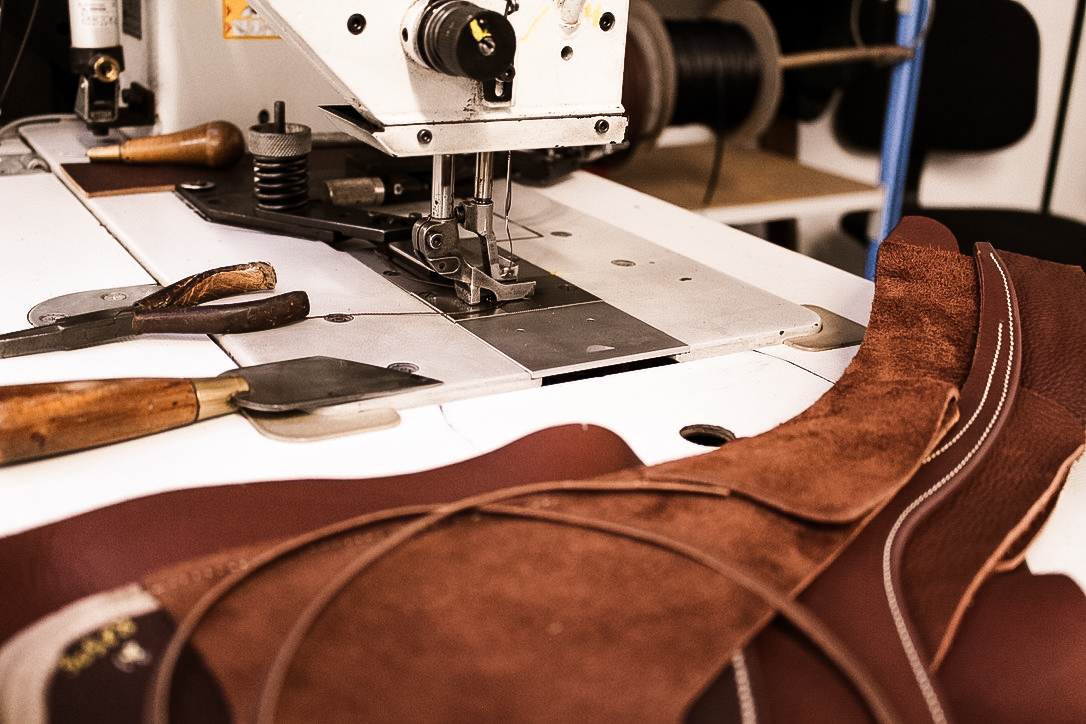
assembling
This stage consists of perfecting the appearance of the previously cut pieces and preparing the various stitching outlines.
The pieces are re-split to obtain the required thickness. The resulting slices are lighter than the grain and are therefore lightly dyed to retain overall homogeneity. The saddler craftsman then rounds off the exposed edges with the edge shave. The stitching outlines are drawn with a silver pencil or sliced part way into the leather to protect the stitching holes on those pieces most subject to abrasion.
discover the assembling
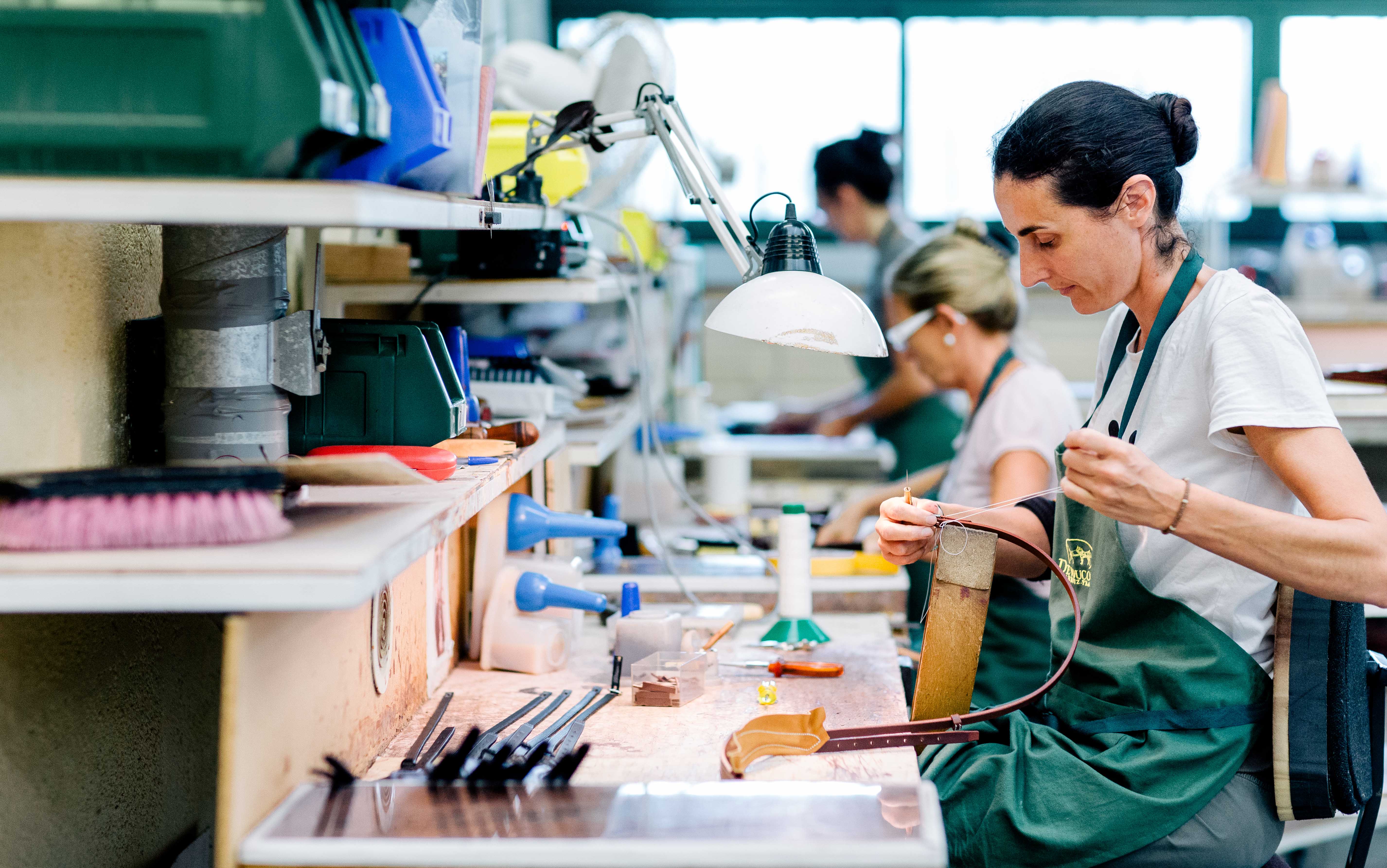
hand-stitching
This is the most demanding stage for our saddler craftsman. Firstly, the leather is pierced right through with an awl. The stitching is done with thread and two needles, which become entangled as the stitches progress, thus producing the famous saddle stitch. Hand-stitching is vital in joining the seat to the skirts.
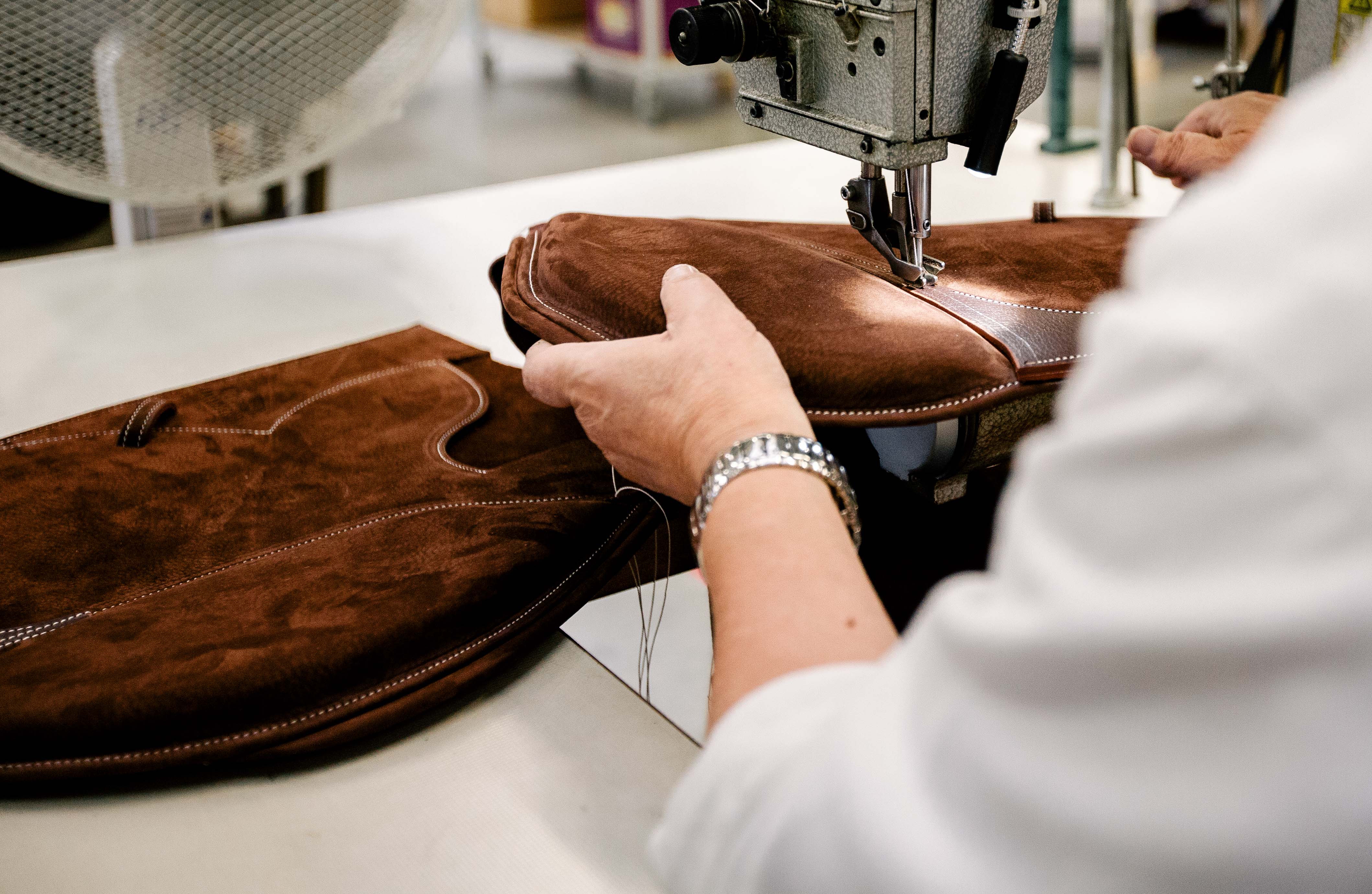
machine stitching
This stage of the fabrication calls upon all the saddler craftsman’s know-how and dexterity to control the machine while following often quite complex curves in a material, leather, that is thick yet delicate to handle. A real talent resulting from years of experience.
discover the matchine stitching
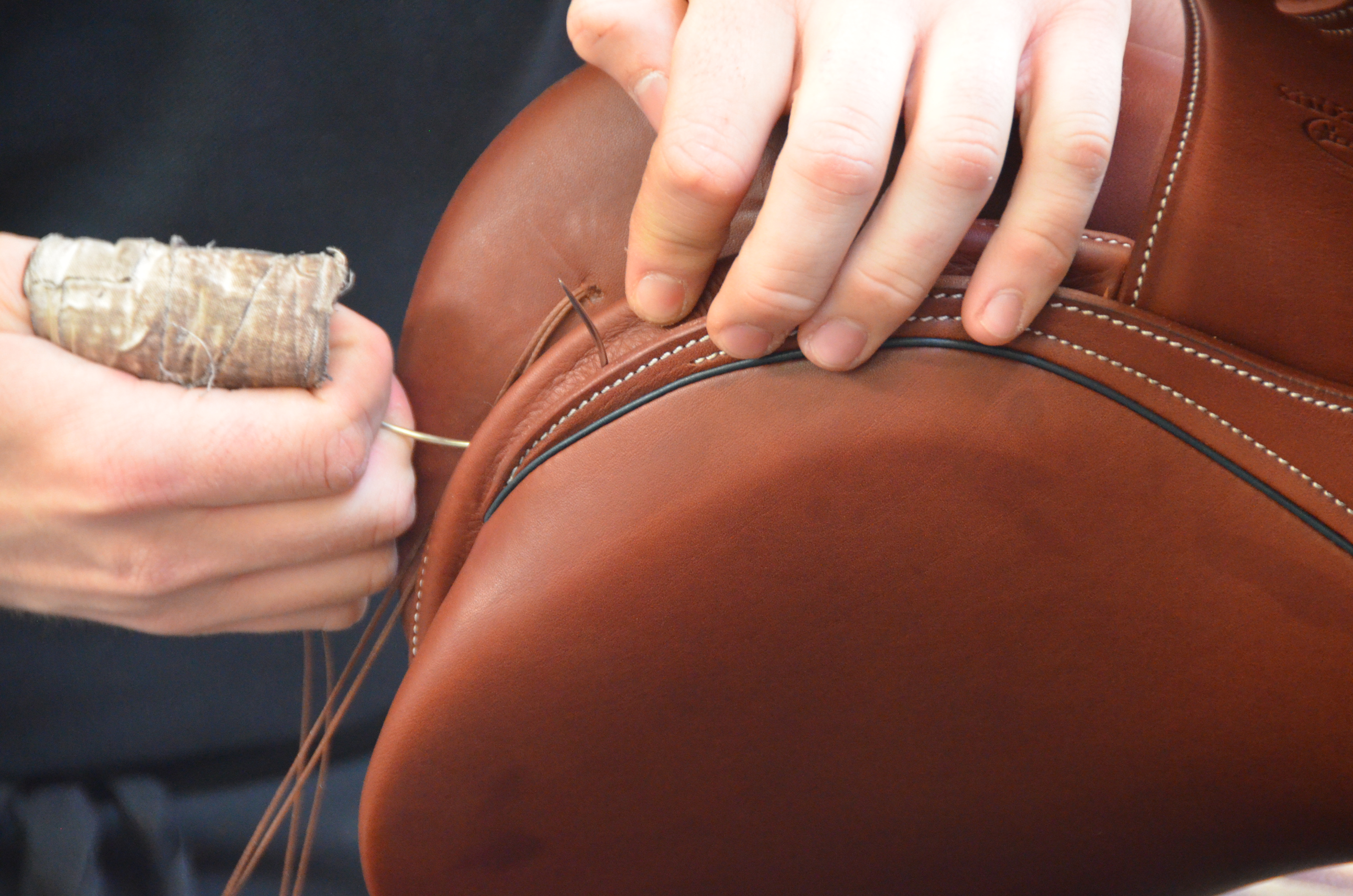
putting together
This is the stage during which the saddle as we know it comes to life. The saddler craftsmen join all the pieces together: first the leather seat is joined to the saddle tree, followed by the flaps and girthing, and then the padding. The saddler craftsman’s know-how is what ensures the overall symmetry.
discover the putting together
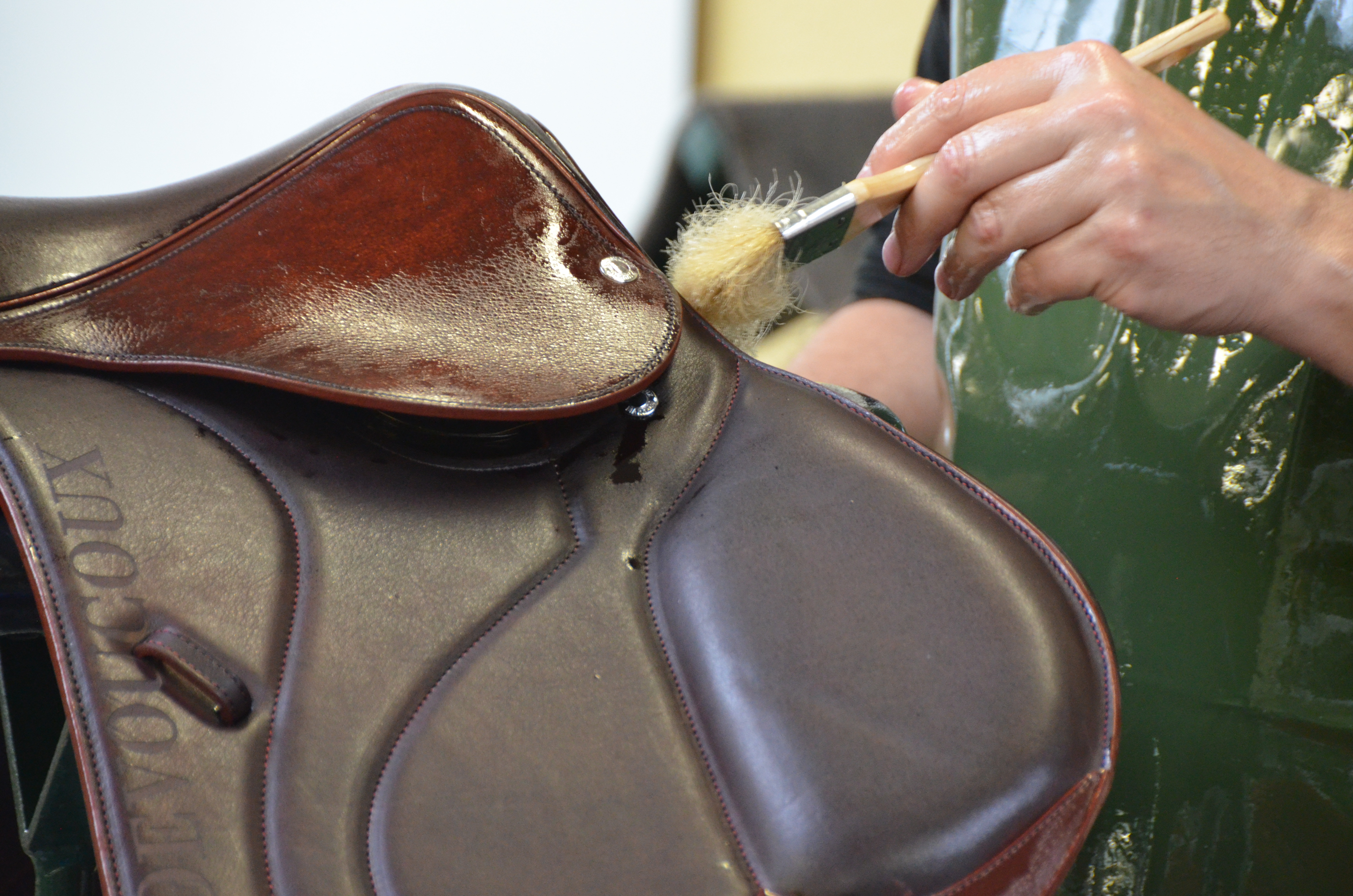
oiling
Once it is assembled and finished, our Devoucoux saddles are oiled in our workshops. This essential step allows the leather to be thoroughly nourished and protected. Once the leather has dried and all the oil has been absorbed, the saddles are checked by our teams before they are sent to their new owners.
discover the oiling